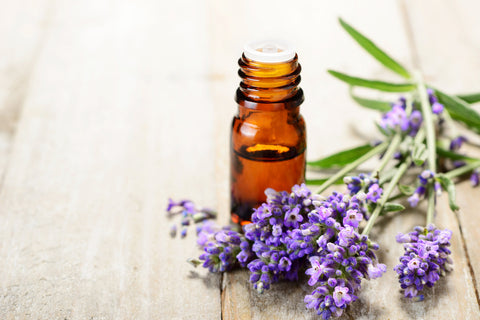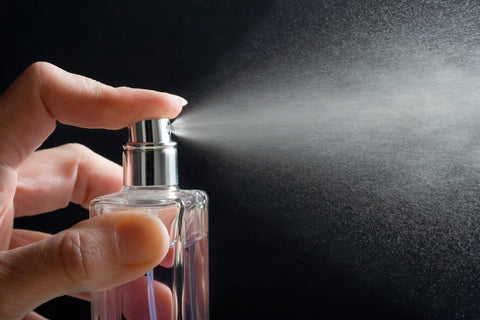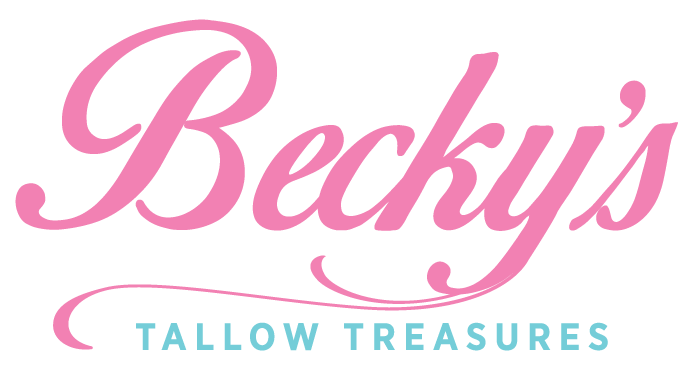
Why can't labeling be straightforward? It's such a common question and one that really should have a simple solution: If a company uses artificial scents, it can't market its product as "fragrance-free". If it were that easy, we all could shop for soaps, shampoos, and lotions without worrying about putting toxins on (and in) our bodies.
Ah, if only the world was so uncomplicated. But as we know, it isn't.
We as consumers place a lot of faith in regulatory agencies such as the U.S. Food & Drug Administration, but FDA guidelines are tricky... and easily circumvented by less-than-ethical manufacturers. In the end, cosmetic companies can get away with omitting dangerous synthetic compounds from their ingredient labels.
Essential Oils vs Synthetic Fragrances
Synthetic fragrances are frequently derived from petroleum products, and some have prompted academic and consumer safety organizations to sound the alarm. One of the most egregious offenders is a class of chemicals generally referred to as phthalates.
Phthalates are a class of compound added to plastics to introduce flexibility and put in cosmetics as carriers for fragrances. Several phthalates have been listed as endocrine disruptors and attention has focused on their potential cumulative effects on reproductive health. — Anthony King, Chemistry World, published by The Royal Society for Chemistry (Great Britain)
Studies in the United States, Australia, Taiwan, and the U.K. have found airborne and applied products containing phthalates to be a risk to male and female reproductive systems and other internal organs. The European Union has gone so far as to ban some phthalates found in fragrances.
A recent Australian study indicated that household and cosmetic fragrances often contain FDA-approved compounds that can, through reactions with ozone and other environmental molecules, generate or convert to hazardous chemicals. As a result, the consumer is effectively breathing in or applying to their skin formaldehyde and other carcinogens.
The Essential Alternative
Essential oils are concentrated botanical solutions mixed with vegetable-based carriers. Essential oils contain the plant's characteristic fragrance, as well as the natural and beneficial chemical compounds responsible for the therapeutic effects for which they're used.
Not all essential oils are the same, of course; this is one reason why the FDA can't regulate them. This might not be a bad thing. Inconsistency among plant crops due to farming practices, climate, weather, and soil quality is a major roadblock to regulatory standardization. And to produce that kind of consistency from crop to crop would require massive amounts of agricultural chemicals to maintain soil fertility and reduce pests and diseases in large-scale, mono-crop cultivation. True organic farming is difficult and very expensive to manage on the scale required to meet the demand that would justify the approval process.
This is why I take my job so seriously. I only source my essential oils from small-scale, organic farmers I know and trust. They don't use petroleum-based pesticides, herbicides, and fertilizers, and they themselves are hands-on from seed to harvest to bottling. Their essential oil concentrations are more than adequate for my own high standards.
Thanks to my relationship with "my" farmers, I can confidently offer sustainable products that only contain the plants' safe and natural chemicals.

Legal Labeling Loopholes
Do your lotions, shampoos, soaps, and moisturizers contain "hidden" toxins? You might be shocked to learn that the ingredients label on that bottle of wonderfully-scented shampoo in your shower doesn't disclose the information you really need to know.
It's important to be self-reliant when determining what's good for your health and that of your family, and label-checking just isn't enough. At the risk of sounding cynical, I want to point out how much influence large corporations have over regulatory agencies and the policymakers who set safety standards we trust to keep us healthy and safe.
Even some products labeled "unscented" may contain fragrance ingredients. This is because the manufacturer may add just enough fragrance to mask the unpleasant smell of other ingredients, without giving the product a noticeable scent. — U.S. Food & Drug Administration
When the FDA says "may", they're not saying it like, "We suspect they may be acting unethically". They're saying, "cosmetic companies are allowed to use deceptive marketing practices."
And the FDA isn't necessarily to blame. The Fair Packaging and Labeling Act is the legislation that made product labeling a requirement, yet it comes with a very contradictory loophole: Cosmetic, food, and beverage companies can't be legally compelled to disclose information that would give away their "trade secrets". According to information provided by the FDA, "fragrance and flavor formulas are complex mixtures of many different natural and synthetic chemical ingredients, and they are the kinds of cosmetic components that are most likely to be "'secrets.'"
It gets worse: Ingredients in fragrances don't need to be broken down and identified at all, whether or not they're declared proprietary. A cosmetic company can outsource a fragrance and legally promote the final product as "phthalate-free." And since the FDA doesn't consider phthalates as a hazard when they're used in cosmetic products—in spite of mounting scientific evidence to the contrary—the only reason these companies are hiding their ingredients is to fool people like you and me.
What Better Motivation to Start Becky's Tallow Treasures?
Let me guess: Right now, you're looking at all your personal care products, scented candles, detergents, and cleaning products, thinking you might as well set your whole house on fire and start over. I don't blame you. Once I became aware of just how unaware I was about the chemicals I used every day, I felt overwhelmed and upset, too.
But then I did something about it and started my own line of personal care products, tossing out the best "natural recipes" in favor of a process in which all my ingredients are sustainably-sourced, organic, and GMO-free... from grass-fed tallows to "from-scratch" bases. I never use artificial fragrances or coloring, and I only use food-grade lye—a practice many soap crafters find to be quite a big deal given that most use over-the-counter, heavy-metal-laden industrial lye.
I don't want to drink water that has fluoride, chlorine, and other "mystery stuff" in it, and I don't want it in my products, either. I use distilled water to make sure my natural ingredients interact the way they're intended.
Best of all, I list ALL the ingredients on my products, and I'm happy to discuss them with you if you ever wish to reach out. Trust me, it's empowering to demand honesty and transparency from the companies you entrust with your health and beauty.




https://medium.com/@adam.scotty.best/
https://spo1top.com/
https://bit.ly/3EhPU7n
https://cutt.ly/BwkKBIGJ
아시안커넥트 에이전시 https://spo1top.com/asianconnect/
에볼루션카지노 https://spo1top.com/evolution/
스보벳 https://spo1top.com/sbobet/
핀벳88(피나클) https://spo1top.com/pinbet88/
맥스벳 https://spo1top.com/maxbet/
비티아이 스포츠 https://spo1top.com/bti-sports/
플레이테크 https://spo1top.com/playtech/
아시안커넥트 우회주소 https://bit.ly/3ZLZOrF 추천인 TM66
실시간스포츠중계 https://bit.ly/3ZLZOrF 추천인 TM66
해외스포츠배팅사이트 https://spo1top.com/
해외배팅사이트추천 https://spo1top.com/
해외배팅사이트에이전시 https://spo1top.com/
안전온라인카지노 https://spo1top.com/
안전해외배팅사이트 https://spo1top.com/
안전배팅사이트 https://spo1top.com/
아시안커넥트 IGX골프 배팅 https://spo1top.com/asianconnect/
아시안커넥트 가입 https://spo1top.com/asianconnect/
아시안커넥트 추천 https://spo1top.com/asianconnect/
아시안커넥트 도메인 https://spo1top.com/asianconnect/
아시안커넥트 안전주소 https://spo1top.com/asianconnect/
아시안커넥트 https://bit.ly/3ZLZOrF 가입코드TM66
https://www.canva.com/design/DAFxNkoJmjE/7reHHLxcnnLE52j9Hi62pw/view?utm_content=DAFxNkoJmjE&utm_campaign=designshare&utm_medium=link&utm_source=editor
https://www.google.com/search?q=%EC%95%84%EC%8B%9C%EC%95%88%EC%BB%A4%EB%84%A5%ED%8A%B8+%EA%B0%80%EC%9E%85&tbm=isch&ved=2ahUKEwjQrbvN6MeCAxUbz6ACHeRGA08Q2-cCegQIABAA&oq=%EC%95%84%EC%8B%9C%EC%95%88%EC%BB%A4%EB%84%A5%ED%8A%B8&gs_lcp=CgNpbWcQARgEMgQIIxAnMgQIIxAnMgcIABAYEIAEMgcIABAYEIAEMgcIABAYEIAEMgcIABAYEIAEUKgIWPULYK8XaABwAHgAgAF6iAHVA5IBAzAuNJgBAKABAaoBC2d3cy13aXotaW1nwAEB&sclient=img&ei=pqxVZdDCG5ueg8UP5I2N-AQ&bih=991&biw=2048&hl=ko
https://linktr.ee/spo1top
https://spo1top.taplink.ws
https://sleek.bio/spo1top
https://spo1top.carrd.co/
https://linkbio.co/5102210L2HxPG
https://solo.to/spo1top
https://linkfly.to/spo1top
https://adamscottybest.wixsite.com/asianconnect
https://sites.google.com/view/asianconnect/
https://sites.google.com/view/btisports/
https://sites.google.com/view/maxbet7/
https://sites.google.com/view/asianconect/
https://sites.google.com/view/sbobet10/
https://sites.google.com/view/pinbet88/
https://www.sites.google.com/view/asianconect/%2F
https://sites.google.com/view/asianconect/%EC%95%84%EC%8B%9C%EC%95%88%EC%BB%A4%EB%84%A5%ED%8A%B8
https://docs.google.com/drawings/d/1Rw9uy_zVHH-HFMfC6zzDogmKWEX4QfRJKouLbBVDX9Q/
https://docs.google.com/drawings/d/1jfDjmepvqsFmjddMk9ExSpiucLuLCooG25nHYJJv32E/
https://docs.google.com/drawings/d/1aOosLvI9NmB14qzndI73GAlLEbqLMx9ch9DKc66TIRE/
https://docs.google.com/drawings/d/1iw_h50dwb711A3vZJdapzQeqNjP8qSSAzOLTq1txjX4/
https://docs.google.com/drawings/d/1UlCrDTUNaz-oNqO7oehLZVMbQML_uu3mTVwxeOAUAno/
https://www.google.com/search?q=site%3Aspo1top.com&sca_esv=569194044&hl=ko&sxsrf=AM9HkKnLkDuYKW8XXzNn7R4LnOXf5VreoA%3A1700208552436&ei=qB9XZaefGvH7seMP4aOq-AQ&ved=0ahUKEwink7-2ysqCAxXxfWwGHeGRCk8Q4dUDCBA&uact=5&oq=site%3Aspo1top.com&gs_lp=Egxnd3Mtd2l6LXNlcnAiEHNpdGU6c3BvMXRvcC5jb21IpzZQlQ5YgzNwAXgBkAEAmAF3oAGMBaoBAzUuMrgBA8gBAPgBAcICBxAjGLADGCfCAgoQABhHGNYEGLADwgIIECEYoAEYwwTiAwQYACBBiAYBkAYE&sclient=gws-wiz-serp
https://tinylink.net/4ZS0x+
https://allmylinks.com/asianconnect/
https://cb.click/gezr+
https://rb.gy/ip20y
https://www.google.com/search?q=%EC%95%84%EC%8B%9C%EC%95%88%EC%BB%A4%EB%84%A5%ED%8A%B8+%EB%A8%B9%ED%8A%80&tbm=isch&ved=2ahUKEwjru8GnkOOCAxXwbmwGHduwAiIQ2-cCegQIABAA&oq=%EC%95%84%EC%8B%9C%EC%95%88%EC%BB%A4%EB%84%A5%ED%8A%B8+%EB%A8%B9%ED%8A%80&gs_lcp=CgNpbWcQAzIECCMQJzIECCMQJ1CbB1ibB2CuCWgAcAB4AIABQ4gBhQGSAQEymAEAoAEBqgELZ3dzLXdpei1pbWfAAQE&sclient=img&ei=Kf5jZauDDfDdseMP2-GKkAI&bih=991&biw=2048
https://www.google.com/search?q=%EC%95%84%EC%8B%9C%EC%95%88%EC%BB%A4%EB%84%A5%ED%8A%B8+%EA%B0%80%EC%9E%85&tbm=isch&ved=2ahUKEwjU_5H-sdaCAxWcafUHHYcRBS0Q2-cCegQIABAA&oq=%EC%95%84%EC%8B%9C%EC%95%88%EC%BB%A4%EB%84%A5%ED%8A%B8+%EA%B0%80%EC%9E%85&gs_lcp=CgNpbWcQAzIECCMQJzIECCMQJzoHCAAQgAQQGFDnBFieD2DmEGgBcAB4AYAB4QGIAf8JkgEDMi02mAEAoAEBqgELZ3dzLXdpei1pbWfAAQE&sclient=img&ei=pFBdZdSdKJzT1e8Ph6OU6AI&bih=991&biw=2048
https://www.google.com/search?q=%EC%95%84%EC%8B%9C%EC%95%88%EC%BB%A4%EB%84%A5%ED%8A%B8+%EC%97%90%EC%9D%B4%EC%A0%84%EC%8B%9C&tbm=isch&ved=2ahUKEwj8h4KRkOOCAxVEcmwGHfOACdQQ2-cCegQIABAA&oq=%EC%95%84%EC%8B%9C%EC%95%88%EC%BB%A4%EB%84%A5%ED%8A%B8+%EC%97%90%EC%9D%B4%EC%A0%84%EC%8B%9C&gs_lcp=CgNpbWcQAzIECCMQJzoHCAAQgAQQGFCRB1jyFmDSGGgCcAB4AYABZYgB5weSAQQxMi4xmAEAoAEBqgELZ3dzLXdpei1pbWfAAQE&sclient=img&ei=-v1jZfyiAsTkseMP84GmoA0&bih=991&biw=2048
https://www.google.com/search?q=%EC%95%84%EC%8B%9C%EC%95%88%EC%BB%A4%EB%84%A5%ED%8A%B8+%EC%95%88%EC%A0%84&tbm=isch&ved=2ahUKEwixzcLvj-OCAxVkUGwGHXtODXAQ2-cCegQIABAA&oq=%EC%95%84%EC%8B%9C%EC%95%88%EC%BB%A4%EB%84%A5%ED%8A%B8+%EC%95%88%EC%A0%84&gs_lcp=CgNpbWcQAzIECCMQJzIECCMQJzoHCAAQgAQQGFCeGlj3L2DuMGgGcAB4AYABaogB2QiSAQQxMy4xmAEAoAEBqgELZ3dzLXdpei1pbWfAAQE&sclient=img&ei=s_1jZfGnMOSgseMP-5y1gAc&bih=991&biw=2048
https://www.google.com/search?q=%EC%95%84%EC%8B%9C%EC%95%88%EC%BB%A4%EB%84%A5%ED%8A%B8&tbm=isch&ved=2ahUKEwi65bLFj-OCAxXLTGwGHed6Dc0Q2-cCegQIABAA&oq=%EC%95%84%EC%8B%9C%EC%95%88%EC%BB%A4%EB%84%A5%ED%8A%B8&gs_lcp=CgNpbWcQAzIECCMQJzIECCMQJzIFCAAQgAQyBwgAEIAEEBgyBwgAEIAEEBgyBwgAEIAEEBgyBwgAEIAEEBhQ8whY8whg5AxoAHAAeACAAUiIAY8BkgEBMpgBAKABAaoBC2d3cy13aXotaW1nwAEB&sclient=img&ei=W_1jZfrLG8uZseMP5_W16Aw&bih=911&biw=954&hl=ko
https://duckduckgo.com/?q=https%3A%2F%2Fspo1top.com&t=h_&ia=web
https://rtb-asiamax.tenmax.io/bid/click/1462922913409/e95f2c30-1706-11e6-a9b4-a9f6fe33c6df/3456/5332/?rUrl=https://spo1top.com/
https://www.joeshouse.org/booking?link=https://spo1top.com/&ID=1112
https://hanhphucgiadinh.vn/ext-click.php?url=https://spo1top.com/
swra.backagent.net/ext/rdr/?https://spo1top.com/
namiotle.pl/?wptouch_switch=mobile&redirect=https://spo1top.com/
golfpark.jp/banner/counter.aspx?url=https://spo1top.com/
www.mexicolore.co.uk/click.php?url=https://spo1top.com/
www.tiersertal.com/clicks/uk_banner_click.php?url=https://spo1top.com/
www.invisalign-doctor.in/api/redirect?url=https://spo1top.com/
www.isadatalab.com/redirect?clientId=ee5a64e1-3743-9b4c-d923-6e6d092ae409&appId=69&value=[EMV%20FIELD]EMAIL[EMV%20/FIELD]&cat=Techniques+culturales&url=https://spo1top.com/
www.immunallergo.ru/bitrix/redirect.php?goto=https://www.https://spo1top.com/
eatart.dk/Home/ChangeCulture?lang=da&returnUrl=https://spo1top.com/
trackingapp4.embluejet.com/Mod_Campaigns/tracking.asp?idem=31069343&em=larauz@untref.edu.ar&ca=73143&ci=0&me=72706&of=581028&adirecta=0&url=https://spo1top.com/
smils.ru/bitrix/redirect.php?goto=https://spo1top.com/
www.hschina.net/ADClick.aspx?SiteID=206&ADID=1&URL=https://spo1top.com/
cipresso.ru/bitrix/redirect.php?goto=https://spo1top.com/
www.vacacionartravel.com/DTCSpot/public/banner_redirect.aspx?idca=286&ids=75665176&cp=167&idcli=0&ci=2&p=https://spo1top.com/
www.mydosti.com/Advertisement/updateadvhits.aspx?adid=48&gourl=https://spo1top.com/
www.malles-bertault.com/?change_langue=en&url=http%253a%252f%252fhttps://spo1top.com/
www.beeicons.com/redirect.php?site=https://spo1top.com/
hirlevel.pte.hu/site/redirect?newsletter_id=UFV1UG5yZ3hOaWFyQVhvSUFoRmRQUT09&recipient=Y25zcm1ZaGxvR0xJMFNtNmhwdmpPNFlVSzlpS2c4ZnA1NzRPWjJKY3QrND0=&address=https://spo1top.com/
www.cccowe.org/lang.php?lang=en&url=https://spo1top.com/
www.mytokachi.jp/index.php?type=click&mode=sbm&code=2981&url=https://spo1top.com/
www.wqketang.com/logout?goto=https://spo1top.com/
access.bridges.com/externalRedirector.do?url=https://spo1top.com/
www.cossa.ru/bitrix/redirect.php?event1=click&event2=&event3=&goto=https://spo1top.com/
bot.buymeapie.com/recipe?url=https://spo1top.com/
www.frodida.org/BannerClick.php?BannerID=29&LocationURL=https://spo1top.com/
extremaduraempresarial.juntaex.es/cs/c/document_library/find_file_entry?p_l_id=47702&noSuchEntryRedirect=https://spo1top.com/
quartiernetz-friesenberg.ch/links-go.php?to=https://spo1top.com/
www.maultalk.com/url.php?to=https://spo1top.com/
www.infohakodate.com/ps/ps_search.cgi?act=jump&url=https://spo1top.com/
www.chitaitext.ru/bitrix/redirect.php?event1=utw&event2=utw1&event3=&goto=https://spo1top.com/
www.realsubliminal.com/newsletter/t/c/11098198/c?dest=https://spo1top.com/
http://getdatasheet.com/url.php?url=https://spo1top.com/
www.rechnungswesen-portal.de/bitrix/redirect.php?event1=KD37107&event2=https2F/www.universal-music.de2880%25-100%25)(m/w/d)&goto=https://spo1top.com/
https://kirei-style.info/st-manager/click/track?id=7643&type=raw&url=https://spo1top.com/
www.aldolarcher.com/tools/esstat/esdown.asp?File=https://spo1top.com/
embed.gabrielny.com/embedlink?key=f12cc3d5-e680-47b0-8914-a6ce19556f96&width=100%25&height=1200&division=bridal&nochat=1&domain=https://spo1top.com/
http://blackwhitepleasure.com/cgi-bin/atx/out.cgi?trade=https://spo1top.com/
azlan.techdata.com/InTouch/GUIBnrT3/BnrTrackerPublic.aspx?CountryCode=18&BannerLangCulture=nl-nl&URL=https://spo1top.com/&Target=2&BannerId=41919&Zoneid=281&Parameters=&cos=Azlan
holmss.lv/bancp/www/delivery/ck.php?ct=1&oaparams=2bannerid=44zoneid=1cb=7743e8d201oadest=https://spo1top.com/
https://www.mintmail.biz/track/clicks/v2/?messageid=1427&cid=54657&url=https://spo1top.com/
www.lzmfjj.com/Go.asp?URL=https://spo1top.com/
http://alexmovs.com/cgi-bin/atx/out.cgi?id=148&tag=topatx&trade=https://spo1top.com/
marciatravessoni.com.br/revive/www/delivery/ck.php?ct=1&oaparams=2bannerid=40zoneid=16cb=fc1d72225coadest=https://spo1top.com/
psylive.ru/success.aspx?id=0&goto=https://spo1top.com/
https://sohodiffusion.com/mod/mod_langue.asp?action=francais&url=https://spo1top.com/
www.mybunnies.net/te3/out.php?u=https://spo1top.com/
lubaczowskie.pl/rdir/?l=https://spo1top.com/&lid=1315
www.kowaisite.com/bin/out.cgi?id=kyouhuna&url=https://spo1top.com/
www.ieslaasuncion.org/enlacesbuscar/clicsenlaces.asp?Idenlace=411&url=https://spo1top.com/
www.168web.com.tw/in/front/bin/adsclick.phtml?Nbr=114_02&URL=https://spo1top.com/
https://asstomouth.guru/out.php?url=https://spo1top.com/
advtest.exibart.com/adv/adv.php?id_banner=7201&link=https://spo1top.com/
https://thairesidents.com/l.php?b=85&p=2,5&l=https://spo1top.com/
www.latestnigeriannews.com/link_channel.php?channel=https://spo1top.com/
www.haogaoyao.com/proad/default.aspx?url=https://spo1top.com/
globalmedia51.ru/bitrix/redirect.php?goto=https://spo1top.com/
citysafari.nl/Home/setCulture?language=en&returnUrl=https://spo1top.com/
es.catholic.net/ligas/ligasframe.phtml?liga=https://spo1top.com/
https://slashwrestling.com/cgi-bin/redirect.cgi?https://spo1top.com/
www.webshoptrustmark.fr/Change/en?returnUrl=https://spo1top.com/
www.tssweb.co.jp/?wptouch_switch=mobile&redirect=https://spo1top.com/
e.ourger.com/?c=scene&a=link&id=47154371&url=https://spo1top.com/
zh-hk.guitarians.com/home/redirect/ubid/1015?r=https://spo1top.com/
www.mastercleaningsupply.com/trigger.php?r_link=https://spo1top.com/
lrnews.ru/xgo.php?url=https://spo1top.com/
lambda.ecommzone.com/lz/srr/00as0z/06e397d17325825ee6006c3c5ee495f922/actions/redirect.aspx?url=http://https://spo1top.com/
v.wcj.dns4.cn/?c=scene&a=link&id=8833621&url=https://spo1top.com/
spb-medcom.ru/redirect.php?https://spo1top.com/
forest.ru/links.php?go=https://spo1top.com/
reefcentral.ru/bitrix/rk.php?goto=https://spo1top.com/
bsau.ru/bitrix/redirect.php?event1=news_out&event2=2Fiblock9CB0%D1D0D0D0%B0BB87B0%D1D1D0D1%82B5%D1D0%B8B0%D0D1D0D1%81828C+2.pdf&goto=https://spo1top.com/
https://trackdaytoday.com/redirect-out?url=https://spo1top.com/
https://bigjobslittlejobs.com/jobclick/?RedirectURL=https://spo1top.com/&Domain=bigjobslittlejobs.com&rgp_m=title23&et=4495
ekovjesnik.hr/ads/www/delivery/ck.php?ct=1&oaparams=2bannerid=4zoneid=4cb=68dbdae1d1oadest=https://spo1top.com/
www.obertaeva.com/include/get.php?go=https://spo1top.com/
www.bobclubsau.com/cmshome/WebsiteAuditor/6744?url=https://spo1top.com/
https://www.google.com/search?q=spo1top.com&sca_esv=569194044&hl=ko&sxsrf=AM9HkKmJjhBliQSG9n_h8yImPajTLCWG0w%3A1695919990463&source=hp&ei=dq8VZa6FGtSmoAT9sLSYAw&iflsig=AO6bgOgAAAAAZRW9hvM4W-0_kj2qMiSEzo-G4vnLX9TF&oq=&gs_lp=Egdnd3Mtd2l6IgAqAggIMgcQIxjqAhgnMgcQIxjqAhgnMgcQIxjqAhgnMgcQIxjqAhgnMgcQIxjqAhgnMgcQIxjqAhgnMgcQIxjqAhgnMgcQIxjqAhgnMgcQIxjqAhgnMgcQIxjqAhgnSLxAUABYAHABeACQAQCYAQCgAQCqAQC4AQHIAQCoAgo&sclient=gws-wiz#ip=1
https://spo1top.wordpress.com/2023/10/03/australias-aml-controller-uncovers-severe-new-client-check-necessities-for-internet-gaming-administrators/
https://spo9top.wordpress.com/2023/10/03/online-gambling-clubs-can-offer-a-wide-range-of-reward-schemes/
https://spo3top.wordpress.com/2023/10/03/kambi-pens-multichannel-sportsbookdeal-with-svenska-spel/
https://spo1top3.wordpress.com/2023/10/03/sports-wagering-handle-and-income-take-a-jump-in-ohio-during-august/
https://spo1topblog.wordpress.com/2023/10/03/online-crypto-gambling-club-bets-io-adds-sports-wagering-by-means-of-softswiss-sportsbook-organization/
https://spo1top4.wordpress.com/2023/10/03/how-do-undergrads-sports-bet-regardless-of-legitimate-limits/
https://spo1top1.wordpress.com/2023/10/03/genuine-sociedad-is-live-underdog-in-champions-league-match-with-rb-salzburg/
https://spo20top.blogspot.com/2023/10/best-thursday-night-football-sports.html
https://spo20top.mystrikingly.com/blog/nevada-rep-commends-nfl-for-patched-up-sports-wagering-strategy-however
https://spo10top.blogspot.com/2023/10/underage-betting-in-australia-ought-to.html
https://spo10top.mystrikingly.com/blog/best-school-football-wagering-promotions-2023-ncaaf-bet-rewards
https://spo3top.blogspot.com/2023/10/parimatch-your-passage-to-unmatched.html
https://spo3top.mystrikingly.com/blog/5-mlb-wagering-promotions-to-get-thursday-incorporating-up-to-1000-in-rewards
https://spo5top.blogspot.com/2023/10/wagering-on-namibian-football-matches.html
https://spo5top.mystrikingly.com/blog/best-ohio-sports-wagering-promotions-for-nfl-tnf-bears-leaders
https://spo7top.blogspot.com/2023/10/on-request-chances-how-streaming-stages.html
https://spo7top.mystrikingly.com/blog/from-beginner-to-ace-building-a-beneficial-games-wagering-procedure-in-nigeria
https://spo20top.blogspot.com/2023/10/online-crypto-gambling-club-wagers-adds.html
https://spo20top.mystrikingly.com/blog/managerial-changes-in-uk-sports-betting-what-you-truly-need-to-know
https://spo10top.blogspot.com/2023/10/update-no-gambling-clubs-inc-needs-say.html
https://spo10top.mystrikingly.com/blog/gaming-and-customary-games-wagering-business-sector-2023-fragment-type
https://spo5top.blogspot.com/2023/10/around-sports-to-presentation-sports.html
https://spo5top.mystrikingly.com/blog/sports-wagering-spikes-in-the-us-help-for-issue-card-sharks-extends
https://spo3top.blogspot.com/2023/10/excelling-at-sports-wagering-procedures.html
https://spo3top.mystrikingly.com/blog/new-york-sports-wagering-income-arrives-at-record-high-as-nfl-season-starts
https://spo7top.blogspot.com/2023/10/draftkings-michigan-promotion-code.html
https://spo20top.blogspot.com/2023/10/when-is-online-games-wagering.html
https://spo20top.mystrikingly.com/blog/what-s-the-significance-here-in-sports-wagering
https://spo1top1.wordpress.com/2023/10/09/want-to-wager-schools-taking-watchfulness-with-sports-betting/
https://spo10top.blogspot.com/2023/10/how-man-made-intelligence-and-ar-could.html
https://spo10top.mystrikingly.com/blog/the-rising-notoriety-of-online-games-wagering-a-computerized-development
https://spo1top4.wordpress.com/2023/10/09/sports-wagering-carries-gobs-of-cash-to-kentucky/
https://spo5top.blogspot.com/2023/10/maine-sports-wagering.html
https://spo5top.mystrikingly.com/blog/investigating-the-advantages-of-digital-currency-wagering-on-the-web
https://spo1top3.wordpress.com/2023/10/09/how-does-sports-wagering-work/
https://spo3top.blogspot.com/2023/10/sports-wagering-applications-how-to-be.html
https://spo3top.mystrikingly.com/blog/online-games-wagering-could-start-statewide-in-florida-when-monday
https://spo3top.wordpress.com/2023/10/10/could-online-games-wagering-return-to-florida-a-lawyer-makes-sense-of-the-chance/
https://spo7top.blogspot.com/2023/10/texas-online-games-wagering-is-it.html
https://spo7top.mystrikingly.com/blog/is-sports-wagering-continuing-in-florida-seminole-clan-faces-choice-in-the
https://spo1topblog.wordpress.com/2023/10/09/sports-wagering-in-california-when-it-will-be-legitimate-how-to-wager-on-the-web-where-to-get-picks-most-recent-promotions/
https://spo20top.blogspot.com/2023/10/kentucky-sees-flood-in-numbers-with.html
https://spo20top.mystrikingly.com/blog/adolescents-are-creating-serious-betting-issues-as-internet-wagering-floods
https://spo1top1.wordpress.com/2023/10/11/wagering-on-progress-exploring-the-present-scene-of-beginning-a-games-wagering-business/
https://spo10top.blogspot.com/2023/10/ontarios-in-general-q2-betting-figures.html
https://spo10top.mystrikingly.com/blog/how-has-sports-wagering-influenced-ny
https://spo1top4.wordpress.com/2023/10/11/sports-wagering-administrator-northstar-gaming-intends-to-send-off-betting-across-canada/
https://spo5top.blogspot.com/2023/10/promotion-dollars-stream-in-first.html
https://spo5top.mystrikingly.com/blog/best-school-ball-wagering-destinations-and-applications-2023
https://spo1top3.wordpress.com/2023/10/11/brazils-games-wagering-bill-picks-up-speed-with-new-rapporteur/
https://spo3top.blogspot.com/2023/10/sports-wagering-in-wexford-your.html
https://spo3top.mystrikingly.com/blog/states-should-settle-pick-them-sports-betting-conversation-draftkings-and
https://spo3top.wordpress.com/2023/10/12/colorado-sports-wagering-income-up-to-25-8m-in-august-mirrors-2022-aggregate/
https://spo7top.blogspot.com/2023/10/day-to-day-dream-sports-administrators.html
https://spo7top.mystrikingly.com/blog/amplifying-client-securing-powerful-promoting-techniques-for-sportsbooks-in
https://spo1topblog.wordpress.com/2023/10/11/discuss-mississippi-move-to-sanction-portable-games-wagering-given-lift-following-remarks-from-state-congressperson/
https://spo20top.blogspot.com/2023/10/us-high-court-puts-hang-on-florida.html
https://spo20top.mystrikingly.com/blog/miscellaneous-items-the-changing-scene-of-contemporary-betting-and-sports
https://spo1top1.wordpress.com/2023/10/12/elys-dispatches-new-sportbet-brand-in-us/
https://spo10top.blogspot.com/2023/10/boss-equity-john-roberts-stops-clans.html
https://spo10top.mystrikingly.com/blog/sports-wagering-sites-bet-on-banksy-s-genuine-personality
https://spo1top4.wordpress.com/2023/10/12/ascent-of-portable-games-wagering-in-new-york-prompts-expanded-state-income-more-issue-betting-related-calls-specialist-finds/
https://spo5top.blogspot.com/2023/10/how-man-made-knowledge-and-ar-could.html
https://spo5top.mystrikingly.com/blog/versatile-games-wagering-procures-nys-more-than-700-million-in-income
https://spo1top3.wordpress.com/2023/10/12/no-betting-clubs-goals-expect-sweeping-games-betting/
https://spo3top.blogspot.com/2023/10/portable-games-wagering-great-for.html
https://spo3top.mystrikingly.com/blog/sports-betting-basic-and-well-known-in-ohio-yet-it-can-come-at-a-ssuper-cost
https://spo3top.wordpress.com/2023/10/13/colorado-sees-less-games-wagering-on-baseball-this-late-spring/
https://spo7top.blogspot.com/2023/10/business-by-books-caesars-spending.html
https://spo7top.mystrikingly.com/blog/shared-sports-wagering-is-crypto-s-next-executioner-application
https://spo1topblog.wordpress.com/2023/10/12/nfl-embraces-legitimized-sports-wagering/
https://spo20top.blogspot.com/2023/10/us-sports-wagering-heres-where-every.html
https://spo20top.mystrikingly.com/blog/north-carolina-sports-wagering-send-off-and-lawful-updates-2023
https://spo1top1.wordpress.com/2023/10/15/effects-of-online-games-wagering-on-su-understudies/
https://spo10top.blogspot.com/2023/10/high-court-requested-of-to-stop-florida.html
https://spo10top.mystrikingly.com/blog/top-games-wagering-welcome-rewards-for-thursday-night-football-smartest-choices
https://spo1top4.wordpress.com/2023/10/15/north-carolina-sports-wagering-new-spending-plan-permits-limitless-portable-sportsbooks/
https://spo5top.blogspot.com/2023/10/the-rising-notoriety-of-internet-games.html
https://spo5top.mystrikingly.com/blog/florida-online-games-wagering-on-hold
https://spo1top3.wordpress.com/2023/10/15/how-man-made-intelligence-and-ar-could-build-the-gamble-of-issue-betting-for-online-games-wagering/
https://spo3top.blogspot.com/2023/10/when-is-online-games-wagering.html
https://spo3top.mystrikingly.com/blog/u-s-high-court-puts-hang-on-florida-sports-wagering-plan
https://spo3top.wordpress.com/2023/10/16/kansas-crushes-sports-wagering-handle-record-in-september/
https://spo7top.blogspot.com/2023/10/sports-betting-conveys-boatloads-of.html
https://spo7top.mystrikingly.com/blog/betting-on-progress-investigating-the-current-scene-of-starting-a-games
https://spo1topblog.wordpress.com/2023/10/15/what-will-the-ascent-of-online-games-wagering-mean-for-sports-participation-in-illinois/
https://spo20top.blogspot.com/2023/10/the-unrest-of-billard-wagering-profound.html
https://spo20top.mystrikingly.com/blog/australian-betting-faceoff-sports-wagering-versus-online-club
https://spo1top1.wordpress.com/2023/10/16/monday-night-football-wagering-promotions-score-top-rewards-on-ranchers-versus-chargers/
https://spo10top.blogspot.com/2023/10/greatness-and-excitement-which-avid.html
https://spo10top.mystrikingly.com/blog/best-pittsburgh-steelers-wagering-promotion-codes-and-rewards-top-steelers
https://spo1top4.wordpress.com/2023/10/16/english-horseracing-faces-mass-migration-of-bettors-assuming-that-nosy-moderateness-checks-are-presented-by-betting-commission-review-finds/
https://spo5top.blogspot.com/2023/10/kicking-it-up-score-rushes-and-dangers.html
https://spo5top.mystrikingly.com/blog/does-football-have-a-betting-issue
https://spo1top3.wordpress.com/2023/10/16/wagering-on-the-2023-recipe-1-race-at-circuit-of-the-americas-what-you-want-to-be-aware/
https://spo3top.blogspot.com/2023/10/peru-endorses-betting-guidelines.html
https://spo3top.mystrikingly.com/blog/riding-the-computerized-wave-how-sports-wagering-upset-internet-betting
https://spo3top.wordpress.com/2023/10/17/sports-funding-meps-maintain-that-should-expand-tolls-on-duties-on-sports-wagering/
https://spo7top.blogspot.com/2023/10/maryland-sports-wagering-bounce-back.html
https://spo7top.mystrikingly.com/blog/la-liga-the-home-of-a-portion-of-the-world-s-greatest-clubs
https://spo1topblog.wordpress.com/2023/10/16/make-your-own-bet-a-manual-for-bet-manufacturers/
https://spo20top.blogspot.com/2023/10/bunch-calls-floridas-games-wagering.html
https://spo20top.mystrikingly.com/blog/no-club-submits-amicus-brief-in-florida-sports-betting-case
https://spo1top1.wordpress.com/2023/10/17/assessed-4b-to-be-spent-on-maryland-portable-games-wagering-in-first-year/
https://spo10top.blogspot.com/2023/10/north-carolina-sports-wagering-rules.html
https://spo10top.mystrikingly.com/blog/network-safety-mindfulness-month-features-chance-of-online-games-wagering
https://spo1top4.wordpress.com/2023/10/17/sports-web-wagers-close-record-levels-in-nj-however-5-of-9-ac-gambling-clubs-trail-pre-pandemic-levels/
https://spo5top.blogspot.com/2023/10/massachusetts-draftkings-takes-record.html
https://spo5top.mystrikingly.com/blog/monitoring-asx-sports-wagering-stocks-as-additional-us-states-support-betting
https://spo1top3.wordpress.com/2023/10/17/finding-the-ideal-games-book-6-highlights-you-shouldnt-disregard/
https://spo3top.blogspot.com/2023/10/what-will-lower-kentucky-games-wagering.html
https://spo3top.mystrikingly.com/blog/the-situation-with-sports-wagering-in-california-a-gander-at-the-present-and
https://spo3top.wordpress.com/2023/10/18/gig-presents-sports-wagering-audits-rewards-site-apuestas-argentinas-to-the-argentine-market/
https://spo7top.blogspot.com/2023/10/from-space-games-to-sports-wagering.html
https://spo7top.mystrikingly.com/blog/tipico-makes-a-big-appearance-new-first-class-exclusive-gambling-club
https://spo1topblog.wordpress.com/2023/10/17/continue-to-roll-the-most-recent-advancements-in-club-unwaveringness-projects/
https://spo20top.blogspot.com/2023/10/superbook-sports-dispatches-online.html
https://spo20top.mystrikingly.com/blog/kentucky-games-wagering-applications-sportsbooks-and-offers
https://spo1top1.wordpress.com/2023/10/20/peru-supports-duty-regulation-for-online-games-wagering-and-igaming-administrators/
https://spo10top.blogspot.com/2023/10/web-based-betting-and-sports-wagering.html
https://spo10top.mystrikingly.com/blog/australian-betting-faceoff-sports-wagering-versus-online-gambling-clubs
https://spo1top4.wordpress.com/2023/10/20/why-portable-games-wagering-is-turning-out-to-be-more-well-known/
https://spo5top.blogspot.com/2023/10/north-carolina-sports-wagering-primer.html
https://spo5top.mystrikingly.com/blog/what-sorts-of-wagers-might-you-at-any-point-make-on-carolina-jaguars-chances
https://spo1top3.wordpress.com/2023/10/20/expect-sports-wagering-ma-piece-of-the-pie-adjustments-in-2024/
https://spo3top.blogspot.com/2023/10/spearheading-future-of-wagering.html
https://spo3top.mystrikingly.com/blog/north-carolina-sports-wagering-fundamental-principles-laid-out-for-versatile
https://spo7top.blogspot.com/2023/10/should-online-games-wagering-firms-keep.html
https://spo7top.mystrikingly.com/blog/why-online-games-wagering-is-more-famous-than-in-person-wagering
https://spo1topblog.wordpress.com/2023/10/20/online-games-wagering-begins-with-a-bang/
https://spo20top.blogspot.com/2023/10/a-general-aide-about-sports-wagering.html
https://spo20top.mystrikingly.com/blog/draftkings-takes-piece-of-the-pie-lead-in-u-s-internet-betting
https://spo1top1.wordpress.com/2023/10/22/superbook-sports-dispatches-online-games-wagering-in-virginia-its-10th-state-live-in-the-us/
https://spo10top.blogspot.com/2023/10/kentucky-opens-real-web-based-sports.html
https://spo10top.mystrikingly.com/blog/what-sorts-of-wagers-could-you-at-any-point-make-on-carolina-typhoons-chances
https://spo1top4.wordpress.com/2023/10/22/electronic-wagering-and-sports-betting-at-a-record-level-in-new-jersey-in-september-pre-pandemic-level-not-came-to-yet/
https://spo5top.blogspot.com/2023/10/best-school-football-wagering-sports.html
https://spo5top.mystrikingly.com/blog/connecticut-online-gambling-club-sports-wagering-handles-take-off-in-september
https://spo1top3.wordpress.com/2023/10/22/what-kinds-of-bets-might-you-anytime-at-any-point-make-on-carolina-pumas-chances-on-the-web/
https://spo3top.blogspot.com/2023/10/network-insurance-care-month-highlights.html
https://spo3top.mystrikingly.com/blog/leading-the-future-of-betting-creative-jump-advances-in-online-sportsbooks
https://spo7top.blogspot.com/2023/10/why-internet-games-betting-is-more.html
https://spo7top.mystrikingly.com/blog/sports-web-wagers-close-record-levels-in-new-jersey-however-5-of-9-gambling
https://spo1topblog.wordpress.com/2023/10/22/innovation-reforms-the-universe-of-online-games-wagering/
https://spo20top.blogspot.com/2023/10/determinants-of-issue-sports-wagering.html
https://spo20top.mystrikingly.com/blog/an-overall-helper-about-sports-betting
https://spo1top1.wordpress.com/2023/10/23/federal-authorities-say-betting-decision-ought-to-push-ahead/
https://spo10top.blogspot.com/2023/10/the-fate-of-betting-investigating.html
https://spo10top.mystrikingly.com/blog/dad-sports-wagering-promotions-spike-to-record-levels-as-nfl-returns
https://spo1top4.wordpress.com/2023/10/23/from-punters-to-hot-shots-how-sports-wagering-changes-the-uk-club-scene/
https://spo5top.blogspot.com/2023/10/senate-rapporteur-assesses-different.html
https://spo5top.mystrikingly.com/blog/paynearme-and-ncr-atleos-accomplice-to-extend-igaming-money-withdrawals
https://spo1top3.wordpress.com/2023/10/23/betting-brand-play-alberta-revives-the-fun-in-the-ordinary/
https://spo3top.blogspot.com/2023/10/why-might-it-be-smart-for-you-to.html
https://spo3top.mystrikingly.com/blog/norway-announces-dns-hindering-game-plan
https://spo7top.blogspot.com/2023/10/draftkings-issues-discounts-to-bijan.html
https://spo7top.mystrikingly.com/blog/georgia-gaming-interests-to-re-energize-legitimization-push-for-sports
https://spo1topblog.wordpress.com/2023/10/23/draftkings-plays-the-right-cards-in-web-based-gaming-development/
https://spo20top.blogspot.com/2023/10/mississippi-officials-preparing-for.html
https://spo20top.mystrikingly.com/blog/here-s-the-reason-you-ought-to-bet-in-an-authorized-web-based-sportsbook
https://spo1top1.wordpress.com/2023/10/24/online-games-wagering-records-for-93-of-kentuckys-248-million-handle-since-send-off/
https://spo10top.blogspot.com/2023/10/gan-to-bring-sports-wagering-stage-to.html
https://spo10top.mystrikingly.com/blog/warhorse-gambling-club-to-open-new-retail-sportsbook-in-nebraska
https://spo1top4.wordpress.com/2023/10/24/draftkings-take-driving-situation-in-the-us-web-based-betting-business-region/
https://spo5top.blogspot.com/2023/10/biden-organization-says-florida-betting.html
https://spo5top.mystrikingly.com/blog/subject-matter-expert-more-thought-expected-for-implications-of-ny
https://spo1top3.wordpress.com/2023/10/24/genuine-betis-expands-association-with-olybet-in-europe/
https://spo3top.blogspot.com/2023/10/investigating-new-skylines-in-kenyan.html
https://spo3top.mystrikingly.com/blog/superbook-sports-ventures-into-10th-us-state
https://spo7top.blogspot.com/2023/10/french-gaming-administrator-fdj-brings.html
https://spo7top.mystrikingly.com/blog/fellow-reports-an-expansion-in-income-from-destructive-betting-for-q3-2023
https://spo1topblog.wordpress.com/2023/10/24/churchill-downs-consolidated-the-eventual-fate-of-sports-wagering/
https://spo20top.blogspot.com/2023/10/high-court-permits-portable-games.html
https://spo20top.mystrikingly.com/blog/arizona-sports-wagering-spend-outperforms-358m-in-august
https://spo1top1.wordpress.com/2023/10/25/nustar-club-resort-dispatches-sports-wagering-stage/
https://spo10top.blogspot.com/2023/10/will-man-made-awareness-make-sports.html
https://spo10top.mystrikingly.com/blog/michigan-online-club-hop-counterbalances-sports-wagering-dunk-in-september
https://spo1top4.wordpress.com/2023/10/25/the-appalling-revolting-side-of-sports-betting/
https://spo5top.blogspot.com/2023/10/sports-wagering-destinations-what-you.html
https://spo5top.mystrikingly.com/blog/mississippi-online-games-wagering-guidelines-keep-on-coming-to-fruition
https://spo1top3.wordpress.com/2023/10/25/nebraska-board-oks-sports-betting-at-warhorse-club-omaha-however-no-wagers-until-november/
https://spo3top.blogspot.com/2023/10/betting-stage-taps-seem-to-convey-live.html
https://spo3top.mystrikingly.com/blog/who-gathered-illinois-sports-wagering-speed-in-august
https://spo7top.blogspot.com/2023/10/engaging-chances-ladies-games-wagering.html
https://spo7top.mystrikingly.com/blog/computer-based-iintelligence-in-the-worldwide-championship-a-huge-homerun-or
https://spo1topblog.wordpress.com/2023/10/25/bet-at-home-cuts-whole-year-pay-course/
https://spo20top.blogspot.com/2023/10/sports-wagering-in-georgia-when-it-will.html
https://spo20top.mystrikingly.com/blog/betway-drops-bid-in-illinois-for-online-just-games-wagering-permit
https://spo1top1.wordpress.com/2023/10/26/advantages-of-sports-wagering-on-the-web/
https://spo10top.blogspot.com/2023/10/digital-currency-use-fills-in-worldwide.html
https://spo10top.mystrikingly.com/blog/italian-soccer-player-adds-to-sports-wagering-related-infringement
https://spo1top4.wordpress.com/2023/10/26/billiards-wagering-examining-the-chances-and-anticipating-results/
https://spo5top.blogspot.com/2023/10/dream-pickem-suppliers-put-on-guarded.html
https://spo5top.mystrikingly.com/blog/new-york-treatment-facilities-work-to-help-those-engaging-betting-enslavement
https://spo1top3.wordpress.com/2023/10/26/parimatch-your-definitive-manual-for-wagering-in-india/
https://spo3top.blogspot.com/2023/10/asians-put-down-higher-web-based-wagers.html
https://spo3top.mystrikingly.com/blog/high-court-permits-versatile-games-wagering-at-seminole-clan-gambling-clubs
https://spo7top.blogspot.com/2023/10/bitsler-survey-uncovering-universe-of.html
https://spo7top.mystrikingly.com/blog/estimating-the-web-based-gaming-and-betting-gamble-for-mn-youth
https://spo1topblog.wordpress.com/2023/10/26/past-today-the-eventual-fate-of-igaming-in-new-jersey/
https://spo20top.blogspot.com/2023/10/sports-wagering-in-north-carolina-when.html
https://spo20top.mystrikingly.com/blog/sandy-s-dashing-and-gaming-brings-legitimate-games-wagering-to-boyd-province
https://spo1top1.wordpress.com/2023/10/27/how-payouts-are-determined-on-sports-wagering-destinations/
https://spo10top.blogspot.com/2023/10/sports-wagering-techniques-how-to-make.html
https://spo10top.mystrikingly.com/blog/betway-drops-bid-in-illinois-for-online-simply-games-betting-grant
https://spo1top4.wordpress.com/2023/10/27/brazils-money-clergyman-tries-to-forestall-sports-wagering-on-state-lotteries/
https://spo5top.blogspot.com/2023/10/twenty-to-thirty-year-olds-make-up.html
https://spo5top.mystrikingly.com/blog/has-kentucky-s-send-off-influenced-west-virginia-sports-wagering
https://spo1top3.wordpress.com/2023/10/27/the-connection-among-digital-money-and-sports/
https://spo3top.blogspot.com/2023/10/advanced-cash-use-fills-in-overall.html
https://spo3top.mystrikingly.com/blog/from-cash-bonanzas-to-pizza-texas-officers-fans-are-wagering-enthusiastic
https://spo7top.blogspot.com/2023/10/reproachful-of-thinking-about-direct.html
https://spo7top.mystrikingly.com/blog/iowa-football-understudy-partner-owen-o-brien-concedes-to-underage-betting
https://spo1topblog.wordpress.com/2023/10/27/obscure-bits-of-trivia-about-the-idea-of-sports-wagering-in-the-us/
https://spo20top.blogspot.com/2023/10/us-high-court-gives-lift-to-sports.html
https://spo20top.mystrikingly.com/blog/california-sports-wagering-2-0-secret-voting-form-drive-proposition-documented
https://spo1top1.wordpress.com/2023/10/29/extension-of-portable-games-gaming-beyond-club-considered/
https://spo10top.blogspot.com/2023/10/betmgm-philadelphia-76ers-organization.html
https://spo10top.mystrikingly.com/blog/nevada-loosens-up-esports-wagering-guidelines-for-nearby-sportsbooks
https://spo1top4.wordpress.com/2023/10/29/top-10-realities-aussies-need-to-be-familiar-with-betting/
https://spo5top.blogspot.com/2023/10/medicines-for-betting-fixation-and.html
https://spo5top.mystrikingly.com/blog/sports-betting-in-florida-has-it-been-approved-update-how-to-bet-on-the
https://spo1top3.wordpress.com/2023/10/29/sports-wagering-firms-proposition-to-slip-out-of-the-pullover-game/
https://spo3top.blogspot.com/2023/10/bbb-alert-con-artists-bet-fans-will.html
https://spo3top.mystrikingly.com/blog/government-specialists-say-florida-sports-betting-overseeing-should-push-ahead
https://spo7top.blogspot.com/2023/10/us-high-court-rejects-challenge-to.html
https://spo7top.mystrikingly.com/blog/one-more-hindrance-to-online-games-wagering-falls-however-different
https://spo1topblog.wordpress.com/2023/10/29/whats-the-significance-here-in-sports-wagering-juice-wagering-made-sense-of/
https://www.canva.com/design/DAFxNkoJmjE/7reHHLxcnnLE52j9Hi62pw/view?utm_content=DAFxNkoJmjE&utm_campaign=designshare&utm_medium=link&utm_source=editor
https://sites.google.com/view/asianconnect/%ED%99%88
https://sites.google.com/view/asianconect/%EC%95%84%EC%8B%9C%EC%95%88%EC%BB%A4%EB%84%A5%ED%8A%B8
https://sites.google.com/view/btisports/%EC%95%84%EC%8B%9C%EC%95%88%EC%BB%A4%EB%84%A5%ED%8A%B8
https://sites.google.com/view/maxbet7/%EC%95%84%EC%8B%9C%EC%95%88%EC%BB%A4%EB%84%A5%ED%8A%B8
https://sites.google.com/view/sbobet10/%EC%95%84%EC%8B%9C%EC%95%88%EC%BB%A4%EB%84%A5%ED%8A%B8
https://sites.google.com/view/pinbet88/%EC%95%84%EC%8B%9C%EC%95%88%EC%BB%A4%EB%84%A5%ED%8A%B8
https://chaturbate.com/external_link/?url=https%3A%2F%2Fspo1top.com%2F
https://chaturbate.com/external_link/?url=http%3A%2F%2Fwww.spo1top.com%2F
https://chaturbate.com/external_link/?url=http://www.spo1top.com%2F
https://chaturbate.com/external_link/?url=http://spo1top.com%2F
https://m.ok.ru/dk?st.cmd=outLinkWarning&st.rfn=http%3A%2F%2Fwww.spo1top.com%2F
https://m.ok.ru/dk?st.cmd=outLinkWarning&st.rfn=http%3A%2F%2Fspo1top.com%2F
https://m.ok.ru/dk?st.cmd=outLinkWarning&st.rfn=https://www.spo1top.com%2F
https://m.ok.ru/dk?st.cmd=outLinkWarning&st.rfn=https://spo1top.com%2F
https://www.hentainiches.com/index.php?id=derris&tour=https://spo1top.com/
https://uniline.co.nz/Document/Url/?url=https%3A%2F%2Fspo1top.com%2F
https://uniline.co.nz/Document/Url/?url=https://spo1top.com/
https://unicom.ru/links.php?go=https%3A%2F%2Fspo1top.com%2F
https://unicom.ru/links.php?go=https://spo1top.com/
https://underwood.ru/away.html?url=https://spo1top.com/
https://underwood.ru/away.html?url=https%3A%2F%2Fspo1top.com%2F
http://www.indianjournals.com/redirectToAD.aspx?id=MQA1ADQAMQA0AA%3D%3D&adAddress=https://spo1top.com/
www.indianjournals.com/redirectToAD.aspx?adAddress=https%3A%2F%2Fspo1top.com%2F&id=MQA1ADQAMQA0AA%3D%3D
www.hentainiches.com/index.php?id=derris&tour=https%3A%2F%2Fspo1top.com%2F
apps.cancaonova.com/ads/www/delivery/ck.php?ct=1&oaparams=2__bannerid%3D149__zoneid%3D20__cb%3D87d2c6208d__oadest%3Dhttp%3A%2F%2Fspo1top.com/
apps.cancaonova.com/ads/www/delivery/ck.php?ct=1&oaparams=2__bannerid%3D149__zoneid%3D20__cb%3D87d2c6208d__oadest%3Dhttp%3A%2F%2Fspo1top.com
apps.cancaonova.com/ads/www/delivery/ck.php?ct=1&oaparams=2__bannerid%3D149__zoneid%3D20__cb%3D87d2c6208d__oadest%3Dhttps%3A%2F%2Fspo1top.com%2F
apps.cancaonova.com/ads/www/delivery/ck.php?ct=1&oaparams=2__bannerid%3D318__zoneid%3D4__cb%3Db3a8c7b256__oadest%3Dhttps%3A%2F%2Fspo1top.com%2F
https://spo3top.blogspot.com/2023/09/kentuckys-legalization-of-sports.html
https://spo3top.blogspot.com/2023/09/15-things-to-consider-about-water.html
https://spo3top.blogspot.com/2023/09/why-should-you-register-with-anonymous.html
https://spo3top.blogspot.com/2023/09/the-rise-of-gambling-and-its-dangers.html
https://spo3top.blogspot.com/2023/09/cryptocurrency-online-casino-site.html
https://spo3top.blogspot.com/2023/09/the-importance-of-online-casino-security.html
https://spo3top.blogspot.com/2023/09/online-casino-rise-in-canada.html
https://spo3top.blogspot.com/2023/09/ksa-investigates-unauthorized-online.html
https://spo3top.blogspot.com/2023/09/navigating-field-comparing-trusted.html
https://spo3top.blogspot.com/2023/09/us-judge-not-ordering-completion-of.html
https://spo3top.blogspot.com/2023/09/gaming-realms-slingo-game-is-now.html
https://spo3top.blogspot.com/2023/09/the-size-of-japans-online-gambling.html
https://spo3top.blogspot.com/2023/09/five-ways-to-improve-your-online-casino.html
https://spo3top.blogspot.com/2023/10/key-considerations-when-choosing-online.html
https://spo3top.blogspot.com/2023/10/sports-wagering-in-colorado-flourishing.html
https://spo3top.blogspot.com/2023/10/safety-first-why-toto-site-and-online.html
https://spo3top.mystrikingly.com/blog/arkansans-anticipated-to-head-hog-wild-on-sports-activities-having-a-bet-apps
https://spo3top.mystrikingly.com/blog/no-one-believed-in-the-colorado-team-led-by-deion-sanders-but-bettors-believed
https://spo3top.mystrikingly.com/blog/top-5-crypto-casinos-in-belgium-every-player-benefits-from
https://spo3top.mystrikingly.com/blog/okada-manila-facilities-to-serve-a-wider-audience
https://spo3top.mystrikingly.com/blog/qtech-games-goes-live-with-galaxsys
https://spo3top.mystrikingly.com/blog/softswiss-in-game-currency-conversion-85-of-bets-in-crypto-casinos-are-made
https://spo3top.mystrikingly.com/blog/breaking-news-week-36-2023-slot-releases
https://spo3top.mystrikingly.com/blog/rivalry-enhances-app-with-new-games-and-casino-exe
https://spo3top.mystrikingly.com/blog/turning-stone-resort-casino-poker-sweepstakes
https://spo3top.mystrikingly.com/blog/regulatory-challenges-how-governments-respond-to-cryptocurrency-casinos
https://spo3top.mystrikingly.com/blog/red-rake-gaming-launches-online-casino-gaming-in-pennsylvania
https://spo3top.mystrikingly.com/blog/can-samsung-flip-take-your-online-casino-experience-to-the-next-level
https://spo3top.mystrikingly.com/blog/this-is-how-you-choose-the-best-online-casino-to-register-at
https://spo3top.mystrikingly.com/blog/france-considers-changes-to-online-casino-law
https://spo3top.mystrikingly.com/blog/the-rise-of-online-sports-betting-in-arizona-a-game-changer-for-sports
https://spo3top.mystrikingly.com/blog/common-mistakes-to-avoid-when-playing-at-online-casinos
https://spo5top.blogspot.com/2023/08/canadas-best-sports-betting-apps-2023.html
https://spo5top.blogspot.com/2023/09/get-hold-week-in-sports-wagering.html
https://spo5top.blogspot.com/2023/09/betway-gets-to-be-arsenals-worldwide.html
https://spo5top.blogspot.com/2023/09/rhode-island-sports-betting-values-fell.html
https://spo5top.blogspot.com/2023/09/online-casino-expansion-is-good-bet-for.html
https://spo5top.blogspot.com/2023/09/online-sports-betting-expected-in.html
https://spo5top.blogspot.com/2023/09/sports-betting-begins-across-kentucky.html
https://spo5top.blogspot.com/2023/09/how-to-make-sports-gambling-fun-and-safe.html
https://spo5top.blogspot.com/2023/09/probably-long-overdue-sports-betting-at.html
https://spo5top.blogspot.com/2023/09/pasilla-suggests-ministry-of-sports.html
https://spo5top.blogspot.com/2023/09/analyzing-sports-gambling-landscape-in.html
https://spo5top.blogspot.com/2023/09/fanduel-selects-aws-as-strategic-cloud.html
https://spo5top.blogspot.com/2023/09/next-up-is-mobile-sports-betting-in.html
https://spo5top.blogspot.com/2023/09/kentucky-sports-betting-promotions-best.html
https://spo5top.blogspot.com/2023/10/sports-betting-hall-of-fame-to-add-four.html
https://spo5top.blogspot.com/2023/10/kansas-gathers-7m-in-first-year-of.html
https://spo5top.mystrikingly.com/blog/ontario-bans-use-of-professional-athletes-in-advertisement-and-promotion-of
https://spo5top.mystrikingly.com/blog/sports-wagering-income-in-unused-york-keeps-up-unfaltering-development-for
https://spo5top.mystrikingly.com/blog/2023-tour-championship-betting-final-considerations-golf-betting-cards
https://spo5top.mystrikingly.com/blog/sports-betting-mps-government-decides-to-change-text-following-football-scandal
https://spo5top.mystrikingly.com/blog/check-out-some-of-the-best-sports-betting-apps-for-2023
https://spo5top.mystrikingly.com/blog/legal-sports-betting-opens-in-kentucky-with-much-fanfare-governor-makes
https://spo5top.mystrikingly.com/blog/how-to-make-sports-gambling-fun-and-safe
https://spo5top.mystrikingly.com/blog/here-you-can-bet-on-northern-kentucky-sports
https://spo5top.mystrikingly.com/blog/online-sports-betting-comes-to-delaware
https://spo5top.mystrikingly.com/blog/missouri-union-takes-own-attempt-to-legalize-sports-betting
https://spo5top.mystrikingly.com/blog/gambling-on-the-grid-sports-betting
https://spo5top.mystrikingly.com/blog/betmgm-raises-stakes-for-2023-24-nfl-season
https://spo5top.mystrikingly.com/blog/kentucky-sports-betting-regulations-update-responsible-gambling-and
https://spo5top.mystrikingly.com/blog/the-wnba-s-coming-out-story-more-sports-betting-dangers
https://spo5top.mystrikingly.com/blog/vince-vaughn-provides-sports-betting-predictions-for-espn-s-college-game
https://spo5top.mystrikingly.com/blog/4-expert-ways-to-pick-safe-web-based-gambling-club-websites
https://spo7top.blogspot.com/2023/08/probably-long-wait-sportsbook-coming-to.html
https://spo7top.blogspot.com/2023/09/as-pro-and-college-football-season.html
https://spo7top.blogspot.com/2023/09/pat-hickey-gambling-genuine-cash-on.html
https://spo7top.blogspot.com/2023/09/sportsbook-cpi-paqueta-and-luis-enrique.html
https://spo7top.blogspot.com/2023/09/mint-gaming-corridor-cumberland-run-to.html
https://spo7top.blogspot.com/2023/09/lions-spoil-chiefs-celebration-of-super.html
https://spo7top.blogspot.com/2023/09/first-nfl-season-begins-with-legal.html
https://spo7top.blogspot.com/2023/09/the-impact-of-sports-betting.html
https://spo7top.blogspot.com/2023/09/first-full-season-of-sports-betting.html
https://spo7top.blogspot.com/2023/09/how-sports-betting-sets-odds-on-sports.html
https://spo7top.blogspot.com/2023/09/thoughts-on-sports-betting-stocks-as.html
https://spo7top.blogspot.com/2023/09/fanduel-taps-star-athletes-for.html
https://spo7top.blogspot.com/2023/09/online-sports-betting-could-begin-as.html
https://spo7top.blogspot.com/2023/09/michigans-igaming-sports-betting.html
https://spo7top.blogspot.com/2023/10/irs-simple-online-sports-betting.html
https://spo7top.blogspot.com/2023/10/teacher-to-concentrate-on-versatile-web.html
https://spo7top.mystrikingly.com/blog/guide-to-kansas-sports-betting-promo-codes
https://spo7top.mystrikingly.com/blog/specialists-anticipate-boost-in-ohio-sports-wagering-with-the-return-of
https://spo7top.mystrikingly.com/blog/bet365-bonus-code-topaction-get-a-200-bonus-on-all-sunday-bets-on-ncaaf
https://spo7top.mystrikingly.com/blog/betway-signs-sports-betting-partnership-with-arsenal
https://spo7top.mystrikingly.com/blog/how-ruddy-mile-is-planning-for-in-person-sports-wagering
https://spo7top.mystrikingly.com/blog/is-sports-betting-legal-in-florida
https://spo7top.mystrikingly.com/blog/betmgm-launches-next-generation-sports-betting-app-for-football-season
https://spo7top.mystrikingly.com/blog/montgomery-county-s-premier-sports-betting-venue-opens-at-north-bethesda
https://spo7top.mystrikingly.com/blog/sports-betting-is-addictive
https://spo7top.mystrikingly.com/blog/why-sports-betting-is-again-at-odds-with-missouri-lawmakers
https://spo7top.mystrikingly.com/blog/florida-s-seminole-tribe-wins-sports-betting-lawsuit
https://spo7top.mystrikingly.com/blog/fanduel-promo-code-get-a-200-bonus-offer-every-wednesday-sports-all-weekly
https://spo7top.mystrikingly.com/blog/new-sports-betting-allowed-in-arkansas
https://spo7top.mystrikingly.com/blog/online-sports-betting-employee-dubbed-the-new-paige-spiranac-raises
https://spo7top.mystrikingly.com/blog/players-naked-in-canadian-sports-betting-ad
https://spo7top.mystrikingly.com/blog/rhode-island-sports-betting-revenue-declines-in-august
https://spo10top.blogspot.com/2023/08/a-comprehensive-overview-of-new.html
https://spo10top.blogspot.com/2023/09/sports-betting-drives-china-lottery.html
https://spo10top.blogspot.com/2023/09/kentuckys-sports-wagering-catalog.html
https://spo10top.blogspot.com/2023/09/sports-committee-promotes-football.html
https://spo10top.blogspot.com/2023/09/all-bets-are-void-how-will-chiefs-nfl.html
https://spo10top.blogspot.com/2023/09/legal-sports-betting-is-off-to-fever.html
https://spo10top.blogspot.com/2023/09/former-nfl-safety-and-paducah-native.html
https://spo10top.blogspot.com/2023/09/here-you-can-bet-on-sports-in-northern.html
https://spo10top.blogspot.com/2023/09/pats-first-game-with-sports-betting.html
https://spo10top.blogspot.com/2023/09/lawmakers-are-calling-for-sports.html
https://spo10top.blogspot.com/2023/09/interest-in-colorado-football-way-up-at.html
https://spo10top.blogspot.com/2023/09/ladbrokes-owner-entain-warns-on-online.html
https://spo10top.blogspot.com/2023/09/virginia-sees-big-tax-bump-from-sports.html
https://spo10top.blogspot.com/2023/10/fantasy-sports-betting-platforms-warned.html
https://spo10top.blogspot.com/2023/10/mint-gaming-lobby-gets-no-negative.html
https://spo10top.mystrikingly.com/blog/bet365-receives-arizona-sports-betting-license
https://spo10top.mystrikingly.com/blog/kentucky-betting-sites-top-5-things-to-know
https://spo10top.mystrikingly.com/blog/mobile-sports-betting-is-putting-more-and-more-people-at-risk-of-addiction
https://spo10top.mystrikingly.com/blog/sports-betting-in-ohio-sees-new-market-leader-in-july
https://spo10top.mystrikingly.com/blog/new-betmgm-campaign-starring-jamie-foxx-makes-highly-anticipated-debut-ahead
https://spo10top.mystrikingly.com/blog/bet-on-the-nfl-the-rams-are-just-a-little-dog-how
https://spo10top.mystrikingly.com/blog/how-to-have-fun-and-safe-sports-gambling
https://spo10top.mystrikingly.com/blog/goodell-defends-nfl-sports-betting-arm-and-warns-punters-not-to-bet-on
https://spo10top.mystrikingly.com/blog/irs-cracks-down-on-illegal-sports-betting
https://spo10top.mystrikingly.com/blog/massachusetts-sees-an-increase-in-online-gambling-activity-during-the-first
https://spo10top.mystrikingly.com/blog/interest-in-colorado-football-way-up-at-sports-betting-sites-but-starting
https://spo10top.mystrikingly.com/blog/ohio-s-newest-online-sportsbook-prime-sports-launches-this-afternoon
https://spo10top.mystrikingly.com/blog/kentucky-expands-betting-catalog-one-week-ahead-of-online-sports-betting-launch
https://spo10top.mystrikingly.com/blog/openbet-enters-newly-regulated-brazilian-sports-betting-market-with-play7-bet
https://spo10top.mystrikingly.com/blog/gambling-company-challenges-florida-tribe-over-online-betting
https://spo10top.mystrikingly.com/blog/kambi-pens-multichannel-sportsbook-deal-with-svenska-spel
https://spo20top.blogspot.com/2023/08/sporttrade-now-live-in-colorado.html
https://spo20top.blogspot.com/2023/09/florida-sports-betting-seminole-tribe.html
https://spo20top.blogspot.com/2023/09/ohio-joins-sports-wagering-heavyweight.html
https://spo20top.blogspot.com/2023/09/enthusiasm-factor-top-drivers-for.html
https://spo20top.blogspot.com/2023/09/betmgm-uk-launches-casino-bonuses-and.html
https://spo20top.blogspot.com/2023/09/iowa-state-qb-hunter-dekkers-among-four.html
https://spo20top.blogspot.com/2023/09/responsible-betting-sports-betting-is.html
https://spo20top.blogspot.com/2023/09/friday-live-blog-follow-sports-betting.html
https://spo20top.blogspot.com/2023/09/alabama-man-charged-with-illegal-sports.html
https://spo20top.blogspot.com/2023/09/brazils-government-plans-to-split.html
https://spo20top.blogspot.com/2023/09/first-criminal-sports-betting-charges.html
https://spo20top.blogspot.com/2023/09/tiger-woods-and-rory-mcilroys-tgl-golf.html
https://spo20top.blogspot.com/2023/09/bet365-bonus-code-topaction-gets-you.html
https://spo20top.blogspot.com/2023/09/2nd-anniversary-sports-gambling-growth.html
https://spo20top.blogspot.com/2023/10/betmgm-reveals-pattern-of-increase-in.html
https://spo20top.blogspot.com/2023/10/ma-sports-wagering-controllers-test.html
https://spo20top.mystrikingly.com/blog/bally-bet-online-sportsbook-revived-and-now-available-in-ohio
https://spo20top.mystrikingly.com/blog/virginia-sports-betting-so-far-is-expected-to-exceed-3-billion-in-2023
https://spo20top.mystrikingly.com/blog/2023-us-open-betting-tips-odds-predictions-and-best-tennis-betting-9-4
https://spo20top.mystrikingly.com/blog/sports-betting-bill-adolfo-viana-wants-to-bring-protestants-into-the-debate
https://spo20top.mystrikingly.com/blog/sports-betting-license-issued-to-social-and-sports-services-in-north-bethesda
https://spo20top.mystrikingly.com/blog/crypto-diversity-in-sports-betting
https://spo20top.mystrikingly.com/blog/legal-sports-betting-opens-in-kentucky-the-governor-makes-the-first-bet
https://spo20top.mystrikingly.com/blog/betr-launches-real-money-mobile-sports-betting-in-virginia
https://spo20top.mystrikingly.com/blog/online-bets-on-nfl-games-surged-in-week-1-as-legal-sports-betting-continues
https://spo20top.mystrikingly.com/blog/ncaa-denies-hawkeye-s-sports-betting-appeal
https://spo20top.mystrikingly.com/blog/tiger-woods-and-rory-mcilroy-s-tgl-golf-league-partners-with-eye-on-sports
https://spo20top.mystrikingly.com/blog/can-fanduel-and-tribes-pave-the-way-for-legal-sports-betting-in-california
https://spo20top.mystrikingly.com/blog/warhorse-casino-in-lincoln-says-football-season-was-gangbuster-for-sports
https://spo20top.mystrikingly.com/blog/arizona-sports-betting-spending-in-july-to-323-2-million
https://spo20top.mystrikingly.com/blog/mgm-resorts-and-hurray-sports-go-into-memorable-games-wagering-organization
https://spo20top.mystrikingly.com/blog/australia-to-turn-off-sports-betting-for-unverified-users
https://spo20top.blogspot.com/2023/11/florida-to-send-off-retail-sports.html
https://spo20top.mystrikingly.com/blog/seminole-clan-of-florida-to-send-off-craps-roulette-and-sports-wagering
https://spo1top1.wordpress.com/2023/11/01/sports-betting-opens-in-maine-on-friday-following-quite-a-while-of-arranging/
https://spo10top.blogspot.com/2023/11/whos-secret-player-behind-new-offered.html
https://spo10top.mystrikingly.com/blog/espn-bet-and-standard-sportsbook-applications-the-hurricane-venture
https://spo1top4.wordpress.com/2023/11/01/betmgm-opens-retail-sportsbook-at-isleta-resort-and-club-in-new-mexico/
https://spo5top.blogspot.com/2023/11/the-european-games-wagering-scene-time.html
https://spo5top.mystrikingly.com/blog/online-games-wagering-industry-key-open-doors-bet365-william-slope-fellow
https://spo1top3.wordpress.com/2023/11/01/legislators-weigh-portable-gambling-club-gaming-to-help-state-income/
https://spo3top.blogspot.com/2023/11/north-carolina-sports-wagering-holds.html
https://spo3top.mystrikingly.com/blog/state-administrators-consider-portable-gambling-club-gaming-to-help-state-s
https://spo7top.blogspot.com/2023/11/nevada-sports-wagering-in-groove-again.html
https://spo7top.mystrikingly.com/blog/betmgm-grows-association-with-sportradar
https://spo1topblog.wordpress.com/2023/11/01/instructions-to-pick-a-dependable-games-wagering-site-tips/
https://spo20top.blogspot.com/2023/11/the-ascent-of-new-advancement-in-web.html
https://spo20top.mystrikingly.com/blog/sports-wagering-is-open-in-maine-starting-friday-following-a-really-long-time
https://spo1top1.wordpress.com/2023/11/02/when-will-online-games-wagering-start-in-florida/
https://spo10top.blogspot.com/2023/11/seminoles-get-alright-to-permit-face-to.html
https://spo10top.mystrikingly.com/blog/what-s-the-significance-here-in-sports-wagering
https://spo1top4.wordpress.com/2023/11/02/maine-to-send-off-lawful-games-wagering-on-3-november/
https://spo5top.blogspot.com/2023/11/online-games-wagering-could-be-coming.html
https://spo5top.mystrikingly.com/blog/sports-wagering-in-california-when-it-will-be-legitimate-how-to-wager-on
https://spo1top3.wordpress.com/2023/11/02/as-new-adversaries-arise-fanduel-chief-cautions-online-games-wagering-not-for-weak-willed/
https://spo3top.blogspot.com/2023/11/new-york-sports-wagering-destinations.html
https://spo3top.mystrikingly.com/blog/seminole-clan-will-begin-face-to-face-sports-wagering-in-florida-in-december
https://spo7top.blogspot.com/2023/11/how-pc-based-knowledge-and-ar-could.html
https://spo7top.mystrikingly.com/blog/draftkings-slides-into-positive-maine-sports-betting-business-area-opening
https://spo1topblog.wordpress.com/2023/11/02/why-online-games-wagering-is-more-well-known-than-face-to-face-wagering/
https://spo20top.blogspot.com/2023/11/well-known-sports-wagering-application.html
https://spo20top.mystrikingly.com/blog/online-games-wagering-5-interesting-points-prior-to-putting-down-a-bet
https://spo1top1.wordpress.com/2023/11/03/seminole-clan-to-start-sports-wagering-at-club/
https://spo10top.blogspot.com/2023/11/enthusiastic-games-wagering-commercials.html
https://spo10top.mystrikingly.com/blog/everymatrix-dispatches-online-sportsbook-for-hungarian-lottery
https://spo1top4.wordpress.com/2023/11/03/how-live-wagering-will-function-on-north-carolina-sports-wagering-destinations/
https://spo5top.blogspot.com/2023/11/excitement-factor-is-main-motivator-for.html
https://spo5top.mystrikingly.com/blog/caesars-royal-residence-online-club-following-the-very-content-anticipated
https://spo1top3.wordpress.com/2023/11/03/draftkings-fanduel-target-sports-bettors-from-unregulated-market/
https://spo3top.blogspot.com/2023/11/nhl-suspension-sparkles-call-for.html
https://spo3top.mystrikingly.com/blog/video-gaming-aand-igaming-how-the-two-universes-are-combining-as-of-late
https://spo7top.blogspot.com/2023/11/betting-on-blockchain-upsetting.html
https://spo7top.mystrikingly.com/blog/a-short-outline-of-ongoing-web-based-betting-administrative-updates-in-canada
https://spo1topblog.wordpress.com/2023/11/03/uk-to-talk-about-betting-extra-guidelines-as-open-backfire-increases/
https://spo20top.blogspot.com/2023/11/canadian-medias-advancement-of-sports.html
https://spo20top.mystrikingly.com/blog/nigerians-burn-through-975m-day-to-day-on-internet-based-sports-wagering
https://spo1top1.wordpress.com/2023/11/05/maine-awards-legitimate-status-to-sports-wagering-caesars-and-draftkings-gear-up-for-send-off/
https://spo10top.blogspot.com/2023/11/the-development-of-relaxation-exercises.html
https://spo10top.mystrikingly.com/blog/club-betting-has-for-quite-some-time-been-a-pervasive-type-of-entertainment
https://spo1top4.wordpress.com/2023/11/05/the-most-effective-method-to-peruse-nba-chances-ball-wagering-guide/
https://spo5top.blogspot.com/2023/11/wynn-broadcasts-new-worker-percentage.html
https://spo5top.mystrikingly.com/blog/maine-dispatches-sports-wagering
https://spo1top3.wordpress.com/2023/11/05/draftkings-representatives-arrangement-for-maine-sports-wagering/
https://spo3top.blogspot.com/2023/11/casino-legalization-is-gaining-momentum.html
https://spo3top.mystrikingly.com/blog/online-games-wagering-could-be-coming-soon-to-florida-adhering-to-new-regulation
https://spo7top.blogspot.com/2023/11/how-might-invite-rewards-work-for.html
https://spo7top.mystrikingly.com/blog/sports-betting-is-as-of-now-genuine-in-maine-this-is-the-very-thing-that-you
https://spo1topblog.wordpress.com/2023/11/05/florida-in-person-sports-betting-to-ship-off-in-december/
https://spo20top.blogspot.com/2023/11/the-second-this-internet-based-sports.html
https://spo20top.mystrikingly.com/blog/how-tech-reshapes-sports-wagering-in-the-us
https://spo1top1.wordpress.com/2023/11/06/sports-wagering-is-presently-live-in-maine/
https://spo10top.blogspot.com/2023/11/line-shopping-in-sports-wagering-how-to.html
https://spo10top.mystrikingly.com/blog/sports-wagering-applications-well-known-in-nebraska-regardless-of-state
https://spo1top4.wordpress.com/2023/11/06/when-will-online-games-wagering-start-in-florida/
https://spo5top.blogspot.com/2023/11/calls-for-albo-to-boycott-sports.html
https://spo5top.mystrikingly.com/blog/evolution-introduces-innovative-prosperity-tree-baccarat-game
https://spo1top3.wordpress.com/2023/11/06/thailand-welcomed-more-than-100000-chinese-tourists-in-the-first-week-of-its-visa-free-policy/
https://spo3top.blogspot.com/2023/11/the-ascent-of-legitimate-games-wagering.html
https://spo3top.mystrikingly.com/blog/maine-goes-live-with-online-games-wagering-caesars-sportsbook-first-to-send
https://spo7top.blogspot.com/2023/11/illinois-state-with-20-million-games.html
https://spo7top.mystrikingly.com/blog/florida-to-send-off-retail-sports-wagering-in-december
https://spo1topblog.wordpress.com/2023/11/06/online-games-wagering-could-be-coming-soon-to-florida-keeping-new-regulation/
https://spo20top.blogspot.com/2023/11/online-games-wagering-resumes-in.html
https://spo20top.mystrikingly.com/blog/end-looked-to-seminole-clan-s-internet-based-sports-wagering
https://spo1top1.wordpress.com/2023/11/08/igaming-and-sports-wagering-exploration-reveals-connection-between-player-experience-and-administrator-productivity/
https://spo10top.blogspot.com/2023/11/sportradar-caribbean-enclosure-ink.html
https://spo10top.mystrikingly.com/blog/an-introduction-for-online-games-wagering-in-the-province-of-north-carolina
https://spo1top4.wordpress.com/2023/11/08/north-carolina-sports-wagering-rules-to-deny-arena-sportsbook-associations/
https://spo5top.blogspot.com/2023/11/international-entertainment-acquires.html
https://spo5top.mystrikingly.com/blog/brazil-senate-continues-to-slow-down-on-sports-betting-bill
https://spo1top3.wordpress.com/2023/11/08/missouris-betting-discussion-stakes-are-worth-billions/
https://spo3top.blogspot.com/2023/11/scorpion-club-is-final-location-for.html
https://spo3top.mystrikingly.com/blog/vermont-changes-sports-wagering-historical-verification-rules
https://spo7top.blogspot.com/2023/11/oklahoma-lead-representative-proposes.html
https://spo7top.mystrikingly.com/blog/the-impact-of-sports-wagering-on-dallas-sports-culture
https://spo1topblog.wordpress.com/2023/11/08/california-sports-wagering-drive-advocates-deal-to-hand-unregulated-market-to-clans/
https://spo20top.blogspot.com/2023/11/north-carolina-sports-wagering.html
https://spo20top.mystrikingly.com/blog/vacillate-shares-fall-in-the-wake-of-disheartening-profit-however-it
https://spo1top1.wordpress.com/2023/11/09/draftkings-versus-fanduel-which-online-sportsbook-is-better/
https://spo10top.blogspot.com/2023/11/sportradar-gets-sports-wagering.html
https://spo10top.mystrikingly.com/blog/five-methods-for-partaking-in-your-energy-for-sports-on-the-web
https://spo1top4.wordpress.com/2023/11/09/not-for-weak-willed-the-fight-for-matchless-quality-in-the-roaring-u-s-sports-wagering-business-sector/
https://spo5top.blogspot.com/2023/11/south-koreas-paradise-inc-and-gkls.html
https://spo5top.mystrikingly.com/blog/sports-wagering-recommendations-crash-and-burn-with-california-s-gaming-clans
https://spo1top3.wordpress.com/2023/11/09/minnesota-actually-considering-sanctioning-games-wagering/
https://spo3top.blogspot.com/2023/11/what-north-carolina-sports-wagering.html
https://spo3top.mystrikingly.com/blog/why-the-uk-betting-industry-keeps-on-blasting
https://spo7top.blogspot.com/2023/11/scandinavian-web-based-gambling-club.html
https://spo7top.mystrikingly.com/blog/draftkings-integrated-researched-potential-888-possessions-takeover
https://spo1topblog.wordpress.com/2023/11/09/what-is-the-best-games-wagering-site-in-texas/
https://spo20top.blogspot.com/2023/11/igt-enters-puerto-rico-online-games.html
https://spo20top.mystrikingly.com/blog/detroit-club-workers-call-for-boycott-of-web-betting-stages-amidst-strike
https://spo1top1.wordpress.com/2023/11/10/a-tech-brother-and-a-poker-brother-have-an-arrangement-to-sanction-california-sports-wagering-on-the-off-chance-that-they-can-persuade-clans/
https://spo10top.blogspot.com/2023/11/internet-wagering-plan-implies-even.html
https://spo10top.mystrikingly.com/blog/bally-bet-acquires-endorsement-to-relaunch-sports-wagering-in-indiana
https://spo1top4.wordpress.com/2023/11/10/uncovering-the-moving-scene-a-profound-plunge-into-igaming-guidelines-in-the-usa/
https://spo5top.blogspot.com/2023/11/fans-think-they-know-why-taylor-swift.html
https://spo5top.mystrikingly.com/blog/espn-insiders-restricted-from-wagering-sports-they-cover-under-new-betting-rules
https://spo1top3.wordpress.com/2023/11/10/find-interminable-web-based-betting-fervor-at-bk8-online-club-singapore/
https://spo3top.blogspot.com/2023/11/where-could-draftkings-sportsbook.html
https://spo3top.mystrikingly.com/blog/betclic-everest-posts-solid-development-notwithstanding-bet-at-home-hardships
https://spo7top.blogspot.com/2023/11/south-carolina-senate-to-examine-sports.html
https://spo7top.mystrikingly.com/blog/research-on-betting-issues-was-vital-to-massachusetts-gambling-club
https://spo1topblog.wordpress.com/2023/11/10/ontario-setting-the-model-for-new-canadian-media-outlet/
https://spo20top.blogspot.com/2023/11/sportsbet-income-down-18-in-q3-on.html
https://spo20top.mystrikingly.com/blog/these-advancements-are-reforming-the-internet-betting-industry
https://spo1top1.wordpress.com/2023/11/12/what-are-the-distinctions-among-club-and-bookmaker-audits/
https://spo10top.blogspot.com/2023/11/cricket-dream-wagering-for-amateurs.html
https://spo10top.mystrikingly.com/blog/north-carolina-sports-wagering-destinations
https://spo1top4.wordpress.com/2023/11/12/end-looked-to-seminole-clans-internet-based-sports-wagering/
https://spo5top.blogspot.com/2023/11/cricket-2023-cricket-world-cup-betting.html
https://spo5top.mystrikingly.com/blog/sports-betting-applications-popular-in-nebraska-paying-little-heed-to-state
https://spo1top3.wordpress.com/2023/11/12/sports-wagering-in-california-when-it-will-be-legitimate-how-to-wager-on-the-web-where-to-get-picks-in-addition-to-promotions/
https://spo3top.blogspot.com/2023/11/portable-florida-sports-wagering-gets.html
https://spo3top.mystrikingly.com/blog/florida-sports-wagering-hard-rock-bet-application-dispatches
https://spo7top.blogspot.com/2023/11/kentucky-opens-legitimate-web-based.html
https://spo7top.mystrikingly.com/blog/what-s-the-importance-here-in-sports-betting
https://spo1topblog.wordpress.com/2023/11/12/sports-wagering-carries-heaps-of-cash-to-kentucky/
https://spo20top.blogspot.com/2023/11/when-does-espn-wager-send-off.html
https://spo20top.mystrikingly.com/blog/kansas-sets-new-games-wagering-handle-and-income-records-in-october
https://spo1top1.wordpress.com/2023/11/13/germany-4-6-million-grown-ups-dependent-on-betting-or-in-danger/
https://spo10top.blogspot.com/2023/11/examiners-sports-wagering-stock.html
https://spo10top.mystrikingly.com/blog/business-by-the-books-prizepicks-starts-free-game-in-the-midst-of-controller
https://spo1top4.wordpress.com/2023/11/13/the-crossing-point-of-football-and-wagering-in-canada-a-complete-outline/
https://spo5top.blogspot.com/2023/11/golf-alfred-dunhill-links-championship.html
https://spo5top.mystrikingly.com/blog/best-games-wagering-applications-in-ontario
https://spo1top3.wordpress.com/2023/11/13/draftkings-strength-a-solid-beginning-to-sports-wagering-in-maine/
https://spo3top.blogspot.com/2023/11/could-bettings-extension-make-south.html
https://spo3top.mystrikingly.com/blog/igt-signs-second-puerto-rico-sportsbook-arrangement
https://spo7top.blogspot.com/2023/11/ontario-controller-partners-start.html
https://spo7top.mystrikingly.com/blog/maine-sports-wagering-opening-end-of-the-week-accumulates-3-4m-in-wagers
https://spo1topblog.wordpress.com/2023/11/13/stop-looked-to-seminole-clans-internet-based-sports-wagering/
https://spo20top.blogspot.com/2023/11/how-does-sports-wagering-work.html
https://spo20top.mystrikingly.com/blog/when-will-online-games-wagering-go-live-in-north-carolina
https://spo1top1.wordpress.com/2023/11/15/espn-enters-the-cutthroat-universe-of-online-games-betting/
https://spo10top.blogspot.com/2023/11/guidelines-to-put-down-games-bet.html
https://spo10top.mystrikingly.com/blog/huge-month-shows-sports-wagering-is-developing
https://spo1top4.wordpress.com/2023/11/15/north-carolina-sports-wagering-locales/
https://spo5top.blogspot.com/2023/11/greggs-trolls-kylian-mbappe-after-st.html
https://spo5top.mystrikingly.com/blog/understanding-games-wagering-chances-a-fledgling-s-aide
https://spo1top3.wordpress.com/2023/11/15/sports-wagering-in-north-carolina-will-not-be-sent-off-on-january-8/
https://spo3top.blogspot.com/2023/11/a-definitive-manual-for-picking-right.html
https://spo3top.mystrikingly.com/blog/what-is-a-spread-in-sports-wagering
https://spo7top.blogspot.com/2023/11/florida-online-games-wagering-re.html
https://spo7top.mystrikingly.com/blog/why-online-games-wagering-is-more-well-known-than-face-to-face-wagering
https://spo1topblog.wordpress.com/2023/11/15/online-games-wagering-begins-with-a-bang-2/
https://spo20top.blogspot.com/2023/11/universities-face-betting-compulsion.html
https://spo20top.mystrikingly.com/blog/arizona-sports-wagering-handle-hits-half-year-high-in-september
https://spo1top1.wordpress.com/2023/11/16/enthusiasts-sportsbook-and-online-club-dispatches-in-west-virginia/
https://spo10top.blogspot.com/2023/11/large-month-shows-sports-wagering-is.html
https://spo10top.mystrikingly.com/blog/penn-diversion-s-recently-marked-espn-wagered-online-sportsbook-is-live
https://spo1top4.wordpress.com/2023/11/16/michigan-online-games-wagering-rises-however-dream-sports-endure-top-dog/
https://spo5top.blogspot.com/2023/11/myanmar-chances-advancement-following.html
https://spo5top.mystrikingly.com/blog/ancestral-gambling-clubs-are-the-main-puts-down-to-wager-on-sports-in
https://spo1top3.wordpress.com/2023/11/16/tennessee-is-logical-losing-cash-with-new-games-wagering-assessment-arrangement/
https://spo3top.blogspot.com/2023/11/sports-wagering-rules-push-ahead-yet.html
https://spo3top.mystrikingly.com/blog/top-three-game-changing-patterns-reshaping-the-2024-betting-industry
https://spo7top.blogspot.com/2023/11/the-effect-of-innovation-on-betting.html
https://spo7top.mystrikingly.com/blog/sega-sammy-eyes-us-internet-gaming-push-with-gan-buy
https://spo1topblog.wordpress.com/2023/11/16/new-draft-guideline-for-sports-wagering-publicizing/
https://spo20top.blogspot.com/2023/11/florida-online-games-wagering-to-go-on.html
https://spo20top.mystrikingly.com/blog/hornets-accomplices-with-internet-betting-firm-as-nc-start-for-sports-betting
https://spo1top1.wordpress.com/2023/11/17/sports-wagering-customary-versus-on-the-web/
https://spo10top.blogspot.com/2023/11/devotees-goes-live-in-west-virginia.html
https://spo10top.mystrikingly.com/blog/florida-high-court-declines-to-end-sports-wagering-however-hidden-legitimate
https://spo1top4.wordpress.com/2023/11/17/california-clans-vote-against-sports-wagering-drives/
https://spo5top.blogspot.com/2023/11/sports-wagering-best-chances-for.html
https://spo5top.mystrikingly.com/blog/new-jersey-club-web-sport-bet-income-up-6-6-in-october-however-most
https://spo1top3.wordpress.com/2023/11/17/portugals-games-wagering-regulations-need-evolving/
https://spo3top.blogspot.com/2023/11/where-will-draftkings-stock-be-in-5.html
https://spo3top.mystrikingly.com/blog/how-payperhead-assists-administrators-with-exploring-the-lawful-scene-of
https://spo7top.blogspot.com/2023/11/administrators-to-play-with-ability.html
https://spo7top.mystrikingly.com/blog/maryland-has-most-useful-month-since-sports-betting-shipped-off
https://spo1topblog.wordpress.com/2023/11/17/north-carolina-lottery-commission-upholds-adaptable-games-betting-standards-day-for-the-opening-shot-still-problematic/
https://spo20top.blogspot.com/2023/11/application-survey-inside-parimatchs.html
https://spo20top.mystrikingly.com/blog/us-sports-betting-guidelines-all-you-need-to-know
https://spo1top1.wordpress.com/2023/11/19/hornets-declare-selective-versatile-games-wagering-accomplice/
https://spo10top.blogspot.com/2023/11/from-wrongdoing-city-to-sports-focal.html
https://spo10top.mystrikingly.com/blog/world-cup-last-punters-on-wagering-binge-india-top-choices-to-spill-australia
https://spo1top4.wordpress.com/2023/11/19/from-players-to-financial-backers-how-scorpion-club-is-overcoming-any-barrier/
https://spo5top.blogspot.com/2023/11/devotees-sportsbook-dispatches-in-west.html
https://spo5top.mystrikingly.com/blog/how-could-development-shape-the-games-betting-industry
https://spo1top3.wordpress.com/2023/11/19/enthusiasts-wagering-and-gaming-dispatches-online-sportsbook-in-west-virginia/
https://spo3top.blogspot.com/2023/11/north-carolina-sports-betting-objections.html
https://spo3top.mystrikingly.com/blog/florida-high-court-won-t-hinder-sports-betting-in-that-frame-of-mind-of
https://spo7top.blogspot.com/2023/11/sports-betting-in-georgia-when-it-will.html
https://spo7top.mystrikingly.com/blog/michigan-web-based-games-betting-ascents-yet-dream-sports-persevere-through
https://spo1topblog.wordpress.com/2023/11/19/hard-rock-bet-dispatches-confined-florida-web-based-games-betting-for-existing-clients/
https://spo20top.blogspot.com/2023/11/florida-high-court-wont-suspend.html
https://spo20top.mystrikingly.com/blog/web-based-games-betting-shipped-off-in-maine-on-november-3-2023-to-reach-1
https://spo1top1.wordpress.com/2023/11/20/louisiana-sets-sports-wagering-handle-and-income-records-in-october/
https://spo10top.blogspot.com/2023/11/indiana-sports-betting-feels-crush-from.html
https://spo10top.mystrikingly.com/blog/pennsylvania-sports-betting-handle-hits-record-829m-in-october
https://spo1top4.wordpress.com/2023/11/20/best-practices-for-your-web-based-sports-wagering/
https://spo5top.blogspot.com/2023/11/specialists-say-industry-has-been.html
https://spo5top.mystrikingly.com/blog/california-ancestral-gaming-affiliation-goes-against-proposed-sports-wagering
https://spo1top3.wordpress.com/2023/11/20/sports-betting-best-opportunities-for-endorsing-wagering-in-georgia/
https://spo3top.blogspot.com/2023/11/bally-bet-re-dispatches-in-new-york.html
https://spo3top.mystrikingly.com/blog/involving-reserve-funds-in-sports-wagering-another-propensity-for-classes-c
https://spo7top.blogspot.com/2023/11/massachusetts-bets-large-on-security-in.html
https://spo7top.mystrikingly.com/blog/us-business-gaming-accomplishes-best-ever-q3-with-record-16-17b-income-eyes
https://spo1topblog.wordpress.com/2023/11/20/new-zealand-occurrences-of-betting-enslavement-among-auxiliary-school-understudies-on-the-ascent/
https://spo20top.blogspot.com/2023/11/espn-bets-terrific-vision-20-portion-of.html
https://spo20top.mystrikingly.com/blog/additional-time-looked-for-in-florida-sports-wagering-battle
https://spo1top1.wordpress.com/2023/11/21/latest-florida-genuine-recording-could-keep-web-based-games-betting-mumbling-into-the-next-year/
https://spo10top.blogspot.com/2023/11/us-sports-wagering-poised-to-hit-100b.html
https://spo10top.mystrikingly.com/blog/michigan-igaming-sports-betting-directors-report-205-3m-in-october-pay
https://spo1top4.wordpress.com/2023/11/21/sports-wagering-in-missouri-moves-forward/
https://spo5top.blogspot.com/2023/11/is-kentucky-games-wagering-influencing.html
https://spo5top.mystrikingly.com/blog/should-sports-wagering-be-legitimized
https://spo1top3.wordpress.com/2023/11/21/new-jersey-sports-wagering-administrators-take-in-92-3m-in-income/
https://spo3top.blogspot.com/2023/11/almost-50-of-german-players-actually.html
https://spo3top.mystrikingly.com/blog/elys-builds-up-us-improvement-plans-after-mixed-q3
https://spo7top.blogspot.com/2023/11/detroit-club-incomes-endured-shot-from.html
https://spo7top.mystrikingly.com/blog/sports-betting-has-the-best-opportunities-for-endorsing-wagering-in-georgia
https://spo1topblog.wordpress.com/2023/11/21/cooperating-with-the-best-the-advantages-of-an-industry-centered-accomplice-like-quixant/
https://spo20top.blogspot.com/2023/11/michigan-online-games-wagering-handle.html
https://spo20top.mystrikingly.com/blog/sports-wagering-in-2023-on-target-to-hit-100-billion
https://spo1top1.wordpress.com/2023/11/22/new-information-shows-quebec-premium-in-ontarios-web-based-sports-wagering-business-sector/
https://spo10top.blogspot.com/2023/11/brazil-sports-wagering-charge-rate-set.html
https://spo10top.mystrikingly.com/blog/2-pari-mutuels-look-for-additional-time-in-seminole-sports-wagering-battle
https://spo1top4.wordpress.com/2023/11/22/wagering-in-the-computerized-age-exposing-the-best-web-based-wagering-sites/
https://spo5top.blogspot.com/2023/11/sports-wagering-in-missouri-moves.html
https://spo5top.mystrikingly.com/blog/artificial-intelligence-driven-innovation-to-upset-sports-wagering-through
https://spo1top3.wordpress.com/2023/11/22/what-is-the-caesars-sportsbook-allude-a-companion-promotion/
https://spo3top.blogspot.com/2023/11/could-alabama-sports-wagering.html
https://spo3top.mystrikingly.com/blog/the-most-effective-method-to-wager-on-soccer
https://spo7top.blogspot.com/2023/11/aficionados-sportsbook-goes-live-in.html
https://spo7top.mystrikingly.com/blog/altering-sports-wagering-voting-form-measures-may-not-influence-california
https://spo1topblog.wordpress.com/2023/11/22/west-virginia-consents-to-multi-state-arrangement-for-online-poker/
https://spo20top.blogspot.com/2023/11/wyoming-crushes-online-games-wagering.html
https://spo20top.mystrikingly.com/blog/instructions-to-wager-while-going-to-a-legitimate-games-wagering-state-for
https://spo1top1.wordpress.com/2023/11/23/plunge-into-the-zapping-universe-of-sports-wagering-with-nustar-sports-max/
https://spo10top.blogspot.com/2023/11/step-by-step-instructions-to-wager-on.html
https://spo10top.mystrikingly.com/blog/michigan-hits-record-533m-online-games-wagering-handle-in-october
https://spo1top4.wordpress.com/2023/11/23/seminoles-plan-face-to-face-sports-wagering-at-its-club-one-month-from-now/
https://spo5top.blogspot.com/2023/11/swedens-atg-banners-disturbing.html
https://spo5top.mystrikingly.com/blog/alabama-to-reexamine-retail-sports-wagering-in-2024
https://spo1top3.wordpress.com/2023/11/23/club-betting-down-sports-wagering-up-in-october/
https://spo3top.blogspot.com/2023/11/the-craft-of-saddling-computerized.html
https://spo3top.mystrikingly.com/blog/fanduel-sportsbook-leads-new-jersey-sports-wagering-portion-of-the-overall
https://spo7top.blogspot.com/2023/11/rudiments-of-wagering-at-online.html
https://spo7top.mystrikingly.com/blog/enthusiasts-sportsbook-enters-virginia-s-wagering-scene
https://spo1topblog.wordpress.com/2023/11/23/missouri-eyes-lawful-games-wagering-with-polling-form-drive/